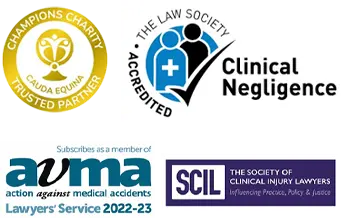
C Diff Infection And Medical Negligence
Clostridium difficile is often known as C. difficile, or simply C Diff. As one of the two major hospital superbugs, C Diff often causes serious complications to those patients who are already in ill health. If you contracted C Diff in hospital, then you may want to know why it happened, and what action you can take.
What Is C Diff?
C Diff is a bacteria found naturally in our gut. When in good health, the presence of C Diff bacteria does not pose any threat because there are also 'good bacteria' that help maintain a healthy balance. However, if these good bacteria are in some way affected, then this leaves the way for C Diff bacteria to multiply and release poisonous toxins. This in turn will make someone feel unwell.
The most common factor that affects the presence of good bacteria in our gut is antibiotics. Therefore C Diff often arises in healthcare environments where people are being treated for other illness with antibiotics. Hospitals in particular find themselves vulnerable to C Diff, not only because patients have a weakened immune system, but also because the infection is highly contagious. The bacteria can spread through the air, contaminate surfaces, and be passed from staff to patient, meaning outbreaks are difficult to control.
Symptoms And Treatment Of C Diff
In the majority of cases, people who contract C Diff do so while taking antibiotics. However, symptoms can develop up to ten weeks after a course of antibiotics has been completed. These symptoms may include:-
- Diarrhoea;
- Blood present in stools;
- Fever;
- Cramps in the abdomen.
In rare cases, the lining of the abdomen can swell to such an extent that a patient will develop further symptoms such as peritonitis, sepsis of the blood, and perforation of the colon.
If a patient is suspected of having C Diff, then a diagnosis can be made by taking a stool sample. Should toxins indicative of infection be found in the faeces, then the treatment must begin as soon as possible.
Type of treatment will depend upon the severity of a patient's symptoms. If in the early stages, then it may be enough to stop taking the antibiotics that have allowed the infection to develop. In the more advanced stages where a patient is displaying symptoms such as severe diarrhoea, an antibiotic known to kill the bacteria should be administered. If a patient suffers any internal harm (such as perforation of the colon) then surgery will also be needed to repair the damage.
C Diff As A Result Of Medical Negligence
While hospital superbugs such as C Diff can be difficult to control once there is an outbreak, it is possible to prevent an outbreak occurring altogether. This can be done through high standards of hygiene and cleanliness. Staff, patients and visitors should all wash their hands with soap and water (because alcohol gels are not effective against C Diff). Additionally, a patient known to have C Diff should be handled with disposable gloves, and all surfaces that could have been contaminated should be cleaned thoroughly.
However, if there is reason to believe that healthcare staff did not do their utmost to maintain a clean environment and a patient catches C Diff, then there may be grounds for a medical negligence claim. Furthermore, if a patient has C Diff but is not diagnosed in a timely fashion or given appropriate treatment, then this may also be deemed as negligent. For more information, you should speak to a medical negligence solicitor who will be able to assess your case and advise you on all the options available.
Can We Help You With A Medical Negligence Enquiry?
Early legal assistance can be vital so please contact us if you would like to discuss your situation. Please call us free on 0800 234 3300 (or from a mobile 01275 334030) or complete our Online Enquiry Form.
Can We Help You With A Medical Negligence Enquiry?
Early legal assistance can be vital so please contact us if you would like to discuss your situation. Please call us free on 0800 234 3300 (or from a mobile 01275 334030) or complete our Online Enquiry Form.



